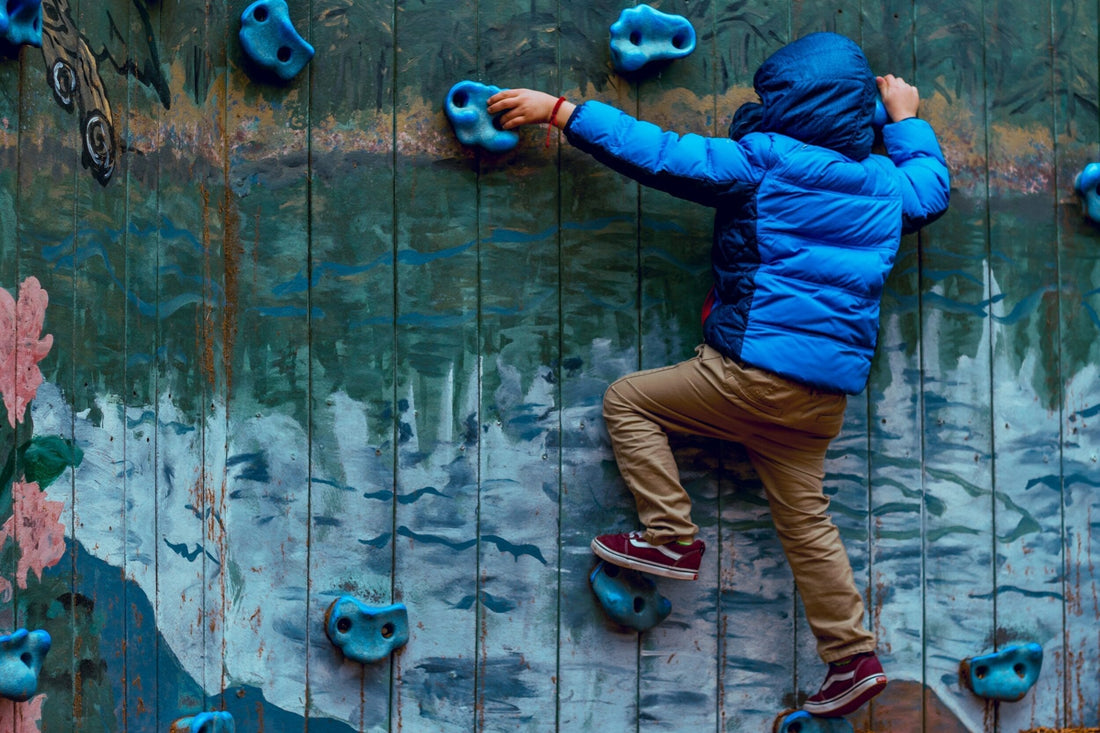
Quitting Time: When Overachieving Does More Harm than Good for Kids
Share
You’ve probably heard some things about quitting:
“Quitters never win and winners never quit!”
“If you quit once, it becomes a habit. Never quit!”
“Just keep swimming!”
As a culture, we tend to praise productivity, work ethic, and grit. We admire people who kept following their dreams until they were successful, but what happens when that dream becomes a nightmare?
Kids and adults alike are often over scheduled and stretched too thin, taking on new activities or sticking with old ones long after they stop being enjoyable.
As disappointing as cancellations might be due to the global pandemic, this is actually a great time for the whole family to reassess what hobbies, activities, and projects to stick with and which ones can fade away.
Yet, for many people, it’s difficult to accept that it’s okay to quit because of beliefs we have about the importance of pushing yourself.
Overachieving means that you continue to do more than is expected or perform at a high level even when doing so is detrimental to you personally or does not produce a greater result.
There’s a fine line between encouraging your child to stick to their goals to develop important skills like focus and structured thinking and pushing them to succeed even though the goal no longer fits their interest or values.
Recognizing and Making Space for What is Lost...
Say at some point your dream was to be a world-renowned piano player, and you spent hours practicing to realize that dream.
However, over time, your passion for the instrument began to wane. Before long, you realized that the thought of becoming even a pretty good piano player just isn’t that appealing to you anymore.
Even if a given activity or goal has become a chore, and on some level you know you’ll be happy to be free of it, it’s also natural for a mourning process to occur when you do decide not to do it anymore.
Allow yourself some time to consider and sit with some of the losses that come with moving on. You’ll never play for a packed house at Carnegie Hall.
You won’t feel the enjoyment that came from mastering a particularly challenging piece of music. Even something as small as losing the sense of peace that exists in the silence after you finish playing.
Trying to ignore these things will likely lead to conflicting feelings and subtle frustration, so encourage your kiddo to name these losses and talk about what moving on means to them.
… But Thinking Critically About What Really Has Been Lost
Now, while making space for the losses that come from moving on from something is important, it’s also important to not dwell on things that are not truly lost.
We often fall into a logical trap in these instances - it’s called the sunk cost fallacy, and it can make moving on from something a more significant drag than it actually is.
Let’s go back to that example of being a piano player.
As you go through the steps of thinking about what moving on from the piano might mean, you might find yourself thinking about all the time you spent practicing the piano and how that time is wasted now because you’re stopping.
However, the reality is that the time you spent practicing piano isn’t wasted because you stopped playing - that time and anything else you could have been doing in those moments is gone the moment they pass.
While it’s useful to consider what stopping means for the future, there is no way to recover that practice time, and mourning it as “wasted time” is dragging yourself over the coals for something that can’t be changed.
Instead, help your kiddo to think of that time as confirming that moving on is the right thing to do. Did your child learn anything that they could apply doing their next activity?
What did they learn about themselves or others? Looking back and wondering “what could have been” can be a stress-inducing experience, so help your kiddo to take comfort in the fact that they know that the activity wasn’t right for them because of all of that time that they spent with it.
Looking Ahead
Finally, it’s useful to look at what was lost as indications of your kiddo’s values and as guides for finding new activities.
For example, if your kiddo needed to mourn the loss of never playing at Carnegie Hall, that seems to indicate that they value performing - so they might want to look for things that allow them to do that, like a drama club.
If they miss the silence and peace at the end of playing, perhaps meditation or a quiet place to read and relax is something they would enjoy.
Moving on from something provides an incredible gift: time.
Taking the lessons from the previous activity can help make the use of that newfound time even more fulfilling.














